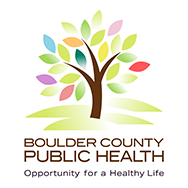High-Risk Drinking Is Common and Dangerous
- Men drinking five or more drinks in a row
- Women drinking four or more drinks in a row
- Drinking that results in a blood alcohol content (BAC) of .08% or more
Most high-risk drinkers are not alcohol-dependent. High-risk drinking is common across all ages, but college students drink more than any other group. Sales information suggests that people actually drink more than they report.
Binge drinking can lead to:
- Motor vehicle crashes
- Violence against others
- Sexually transmitted infections (STIs)
- Unplanned pregnancy
- Alcohol dependence
- Family problems
What is Excessive Drinking? (CDC)
Reduce Your Risks
If you decide to drink alcohol, you can reduce your risks by adopting healthier strategies, including:
- Drink slowly
- Eat before you drink
- Alternate between alcoholic drinks and water
- Limit your number of drinks and keep track
- Arrange transportation ahead of time and never drink and drive
Alcohol Emergencies
Drinking to excess can be deadly. Heavy drinking can significantly impact the body’s vital functions. If a person drinks to the point of losing consciousness or “passing out,” he/she may be at risk of alcohol poisoning and could die.
Signs of alcohol poisoning:
- Mental confusion or stupor
- Seizures
- Person cannot be awakened
- Cold, clammy, bluish, or pale skin
- Slow or irregular breathing
- Vomiting while unconscious
Take Action
- Call 911 – even if you only suspect that someone has alcohol poisoning
- Turn the person onto his/her side
- If breathing stops, perform CPR
- Remember that alcohol poisoning is deadly serious. Don’t hesitate to get help.



